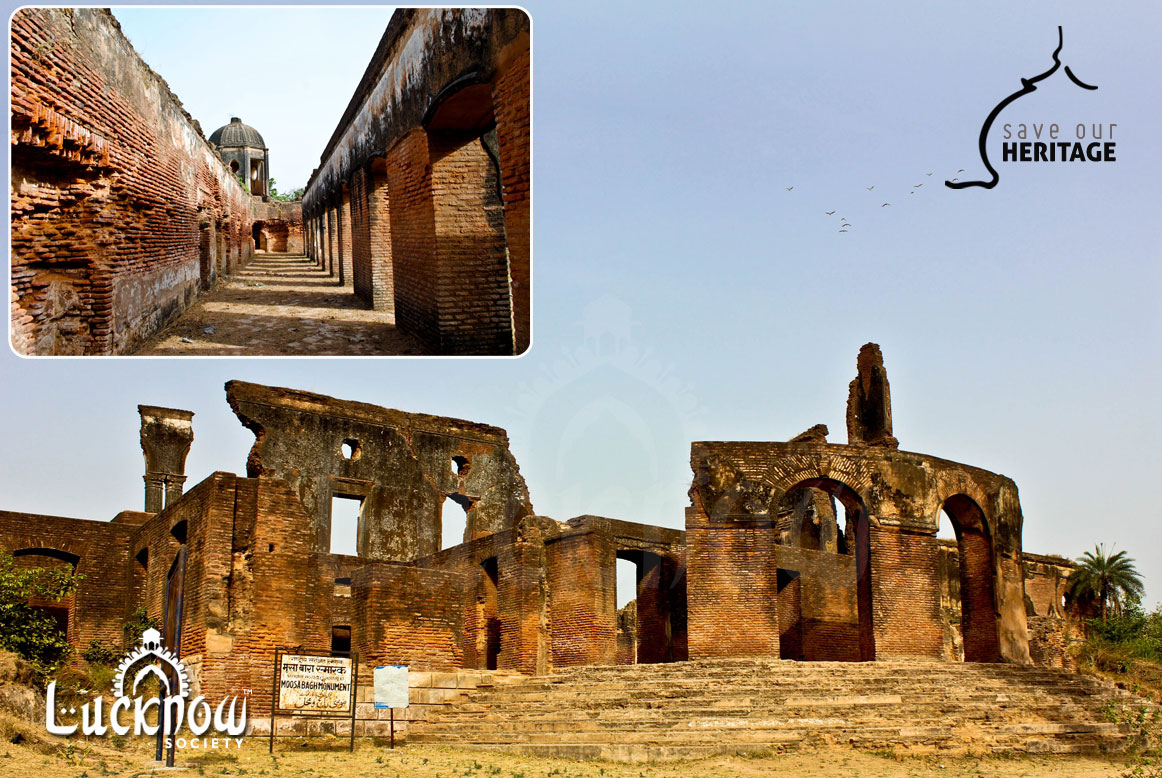Musabagh, Lucknow
Located on the outskirts of the city, Musabagh, also known as Barooni Bagh which was once a garden complex, is now found over grown with vegetation. The surrounding of which are also seen undergoing rapid colonial expansion. The Musabagh complex originally comprised a palace and an extensive garden. It was built in European style of architecture with lakhauri bricks, lime plastering and was adorned with beautiful stucco mouldings. It was basically a four storeyed rectangular structure on one side and two storeyed on the other. There were spiral staircases on either side along with fluted domes. Portico ducts were used in this palace for air-ventilation. The structural feature that has been appealing the lot visiting this place is the leaf-like architectural design found on the domes and other walls of the building. It showcases how skilful the artisans and craftsmen of those times were.
According to Mr. Roshan Taqui, ‘Built in the year 1803-1804 by Nawab Saadat Ali Khan, under the superintendence of Aazam-ud-daula, this complex was intended to be used as a place for seclusion. For the recreation of the Nawab and his royal guests, animal fights were arranged here. In the Musabagh cemetery, Captain F Wale, a British officer who was a commander of the first Sikh irregular cavalry, lies buried. In 1857, he was killed here in the last battle fought in Lucknow, between the British and the native forces in which the British finally succeeded. Captain L.B Jones, the friend of Captain Wale, was the one to erect his grave.’ His cemetery is renowned among the locals as Kaptan Shah Baba ki Mazaar and Cigarette wale baba ki Mazaar. There’s a very interesting reason for addressing the cemetery by the so called names. Locals say that they often see a Britisher asking for cigarettes and once he gets it, he goes back into the cemetery. Thinking that it is the soul of Captain F Wale, who lies buried here, people from far off places come here in large numbers bringing cigarettes as an offering. They come here to pray and when their wishes come true, they come here again in order to offer a lot many cigarettes as votive offering. Thus, portraying the fact that if one bows head in full devotion then even a stone can turn into God. The present-day Musabagh complex is now left in ruins. Although its a protected archaeological site, but very close to it rapid development is taking place.
Credit : Intern – Divya Suri

